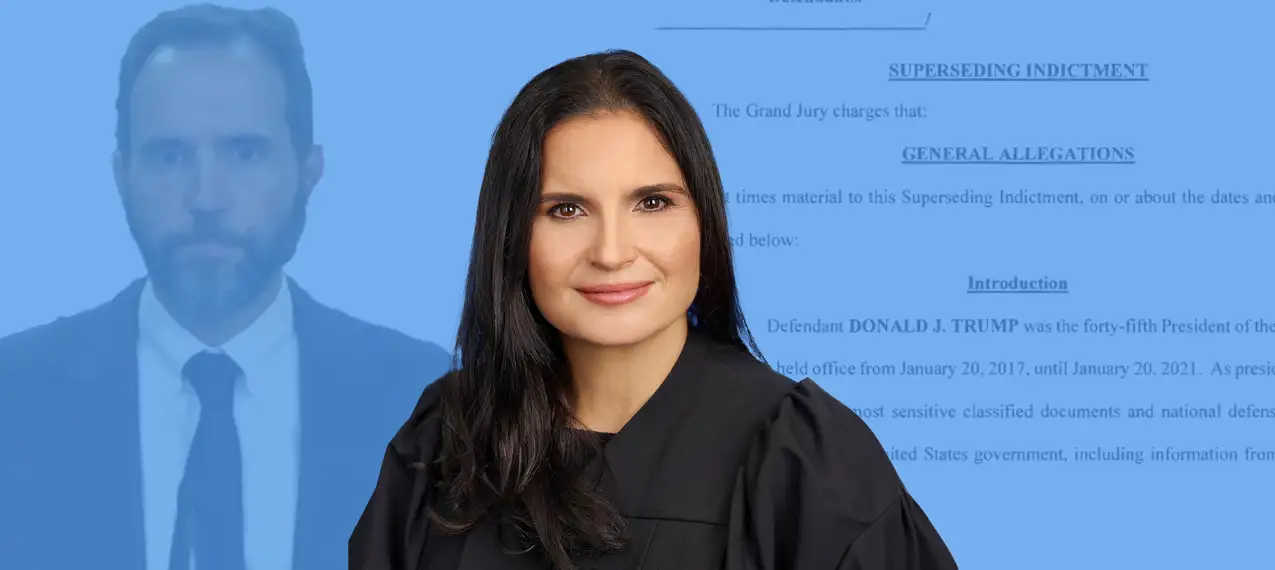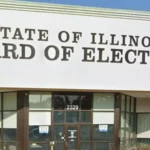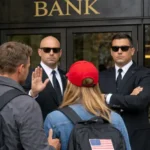
On Friday, June 21, Judge Aileen Cannon held oral arguments on the motion submitted by Donald Trump to dismiss Special Counsel Jack Smith’s indictment on the grounds that Jack Smith was unconstitutionally appointed. Uniquely, Judge Cannon provided three amici the opportunity to present their arguments in addition to those of Trump and Smith. Throughout the hearing, Judge Cannon remained impartial and asked difficult questions to all parties in an attempt to determine whether the motion to dismiss on the aforementioned grounds carried weight.
The former President’s lawyers opened proceedings. They first argued that the sections of the U.S. Code which Attorney General Garland had cited as enabling him to establish an office of Special Counsel provided the AG no such authority. Section 533, they claimed, applied only to the FBI and only referenced “officials,” not “officers” which both Trump and Smith agree Jack Smith is. Trump’s team noted that while the Supreme Court cited section 533 in Nixon v. United States as empowering the Special Prosecutor, the section had not been used in the formation of Independent or Special Counsel offices since that time, until Jack Smith. Trump’s team then focused on sections 515(a) and (b). They argued that while these sections reference “special assistants” and “special attorneys,” both contemplate officials which have already been properly appointed inside the Justice Department, rather than a figure such as Jack Smith, who did not hold any position within DOJ prior to his appointment. Further, they noted that special assistants are defined elsewhere in the code, and clearly are not the same as special counsels.
Trump’s team urged Judge Cannon to find that Nixon did not control this case, as its analysis of the statutory justification for an office such as Jack Smith’s was non-existent, and the court presupposed that those statutes provided the government with proper authority to appoint special prosecutors. They also argued that Jack Smith was a principal, rather than inferior, officer. They pointed out that Smith has no functional superior, as the AG has repeatedly stressed the independence of the Special Counsel. As a Principal Officer, Smith must receive Senate Confirmation, and given the fact he did not, he was unconstitutionally appointed.
The Special Counsel’s office then proceeded with their arguments. They noted Nixon and subsequent caselaw from the D.C. Circuit Court made clear that sections 533 and 515 did provide the government with the requisite authority to create Jack Smith’s office. They stated that even if Nixon’s statutory analysis does not control, it is at least dicta and should be given great weight. They also argued that while the AG is not involved in the day-to-day operations of Smith’s investigation, he is empowered by DOJ regulations to intervene as he sees fit, and thus the inferior-principal officer test from Edmond v. United States applies, making Smith an inferior officer rather than a principal one.
Smith’s team also engaged in statutory analysis, stating that the term “official” in section 533 encompasses both officers and employees and thus does empower the AG in this instance. Further, they argued that the “special assistants” and “special attorneys” in section 515(b) are akin to Jack Smith. His team discussed the long history and use of special prosecutors by the Federal Government, from President Grant to present times. Finally, they closed by noting that ruling the Special Counsel is unconstitutionally appointed would make other positions, such as Deputy Assistant Attorneys General (DAAGs) unconstitutional as well.
After a break for lunch, the three amici were given the opportunity to argue. Amicus supporting the Special Counsel, the Constitutional Lawyers, began the afternoon and offered similar arguments to those of the Special Counsel’s team. Rather than preempting the arguments proffered of the other amici, they seemed content to reinforce the Special Counsel’s position.
Professor Josh Blackman followed, arguing on behalf of Professor Seth Tillman and Landmark Legal Foundation. He opened with a discussion of Nixon, urging Judge Cannon to find its statutory analysis as holding or dicta, because it was restricted to the “unique” circumstances of the Nixon investigation, something the court made explicit in discussing the “uniqueness” of the situation. Professor Blackman then argued that Jack Smith was not an officer, principal or inferior, but rather an employee of the United States because the office of the Special Counsel is not “continuous.” Caselaw including Lucia v. United States, Morrison v. Olson, Germaine v. United States, and United States v. Hartwell has made it plain that to be an officer of the United States one must occupy a “continuing” position, and as Professor Blackman pointed out, Jack Smith’s office is limited to a single, specific duty, terminates upon the completion of that duty, and has no provisions for succession, making it “temporary.”
Professor Blackman also discussed the history of Special Prosecutors, noting that in the past the President has exercised great authority and oversight of them, with some Presidents even firing them for investigating unwanted subjects. Finally, he advanced another novel argument in noting that the Special Counsel’s funding, laid out in section 591 of the U.S. Code, only authorizes funding for the prosecution of high-ranking government officials during their tenure or up to a year after they leave office. Because Smith initiated this action over a year after Donald Trump left the presidency, and concerns conduct as a private citizen, Professor Blackman suggested the funding for this prosecution may not exist and would therefore necessitate dismissal of the indictment.
Wrapping up the amici was Gene Schaerr, on behalf of former Attorneys General Meese and Mukasey, as well as Citizens United and Professors Lawson and Calabresi. Schaerr argued that Nixon should not be held as binding because it assumed the statutory justification for the Special Prosecutor in that case was constitutional and thus provided no real analysis. This means that even if the reference to the statutes was dicta, it is weak dicta and does not need to be binding. Schaerr then concluded by advancing statutory and constitutional arguments similar to those offered by the Trump team. He took the position that the sections of the U.S. Code cited by the government did not authorize the creation of the Special Counsel and that Smith has no functional superior and therefore cannot be considered an “inferior” officer in any sense.
Judge Cannon then heard rebuttals from the Trump and Smith teams. Of particular note, she pressed Smith’s lawyers, asking them for specific instances of oversight by the Attorney General in Jack Smith’s prosecutions. She seemed to become increasingly irked by Smith’s team during this questioning, as they avoided directly answering the questions about oversight repeatedly.
SUPPORT LANDMARK LEGAL FOUNDATION
We are truly facing existential threats to our individual rights and liberties, the Constitution, and our national character. If unchallenged, this assault on our very way of life will ruin our great nation. With your financial and moral support, Landmark is not going to let that happen without a fight. Will you join us?
JOIN OUR MAILING LIST
Never miss an update from Landmark Legal Foundation as we continue the fight to preserve America’s principles and defend the Constitution from the radical left.
Landmark will NEVER share your contact information and we will not flood your inbox.





